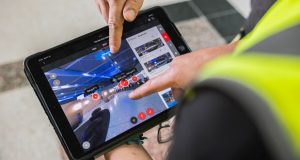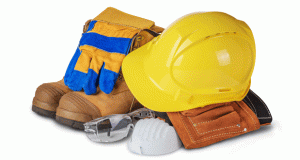 Blog from Theo Nicolaou, Co-Founder and Director, Smartsec Solutions
Blog from Theo Nicolaou, Co-Founder and Director, Smartsec Solutions
Since the start of the pandemic, a lot has rightly been said about the role the police, couriers, supermarket and NHS staff have played in keeping us safe. However, there remains little recognition when it comes to front of house security officers who continue to manage near-empty high-rise buildings under extremely taxing conditions.
They are essential workers. Despite the new strain of COVID-19 and the understandable fear that goes with it, they continue to travel into city centres, exposing themselves to great risks to ensure others are kept safe. Though the development of vaccines promises a return to in-person interactions somewhere down the line, we will be moving into a ‘new normal’ rather than back to the pre-pandemic world we once knew. Whilst it has clearly been the right thing to do, the latest lockdown has been a dagger blow into the heart of security officers who had hoped we were edging our way closer to the end of what has been a very dark and traumatic tunnel for them.
ONS figures published in summer 2020 revealed that UK male security officers are at significant risk of dying from COVID-19. In fact, male security officers have one of the highest rates, with 45.7 deaths per 100,000. When you consider that security officers are largely having to travel to central London via bus or the London Underground, it puts these figures into even greater perspective. They are risking their health and wellbeing, both physically and mentally, to protect people, property, and businesses. All whilst we stay in.
Transport into work has been a consistent concern for our officers. At the start of the pandemic in March 2020, our staff would drive into London before 7am and leave after 6pm. This meant they would avoid any congestion charges. However, Transport for London raised the levy in June and extended it to 10pm and weekends costing drivers £15 a day.
You can understand, then, why mental health has been waning. They are putting their health on the line every day and then facing many new challenges and responsibilities at work whilst traditional office workers from their building remain at home. There’s also the ongoing concern about job security. Landlords are slashing costs, and in the long run they worry that home-working could wipe out a significant portion of the security industry. We have seen one client cut its floorspace from four floors to one and it would not be a surprise to see businesses move out of London to business parks where parking isn’t an issue, rents and rates are reasonable, and people come into the office once or twice a week.
Once thriving with over 2,000 office-based workers, the reality is that the large high-rise buildings we manage are currently occupied by just 30-40 people. Front of house officers gaze at the large reception windows as one or two cars pass by every few minutes, and the sound of their shoes echo eerily on the marble floors as they walk through barren corridors without the noise of other voices to drown it out. Loneliness is rife.
Mental health training is crucial to help identify any early warning signs. It is absolutely vital that regular officer check-ins continue – they need reassurances much like the tenants of their buildings. This is particularly important for lone workers and officers on high-risk sites. It is a much-needed figurative arm around them and a welcome friendly face to talk to.
From the officer’s point of view, a great deal of empathy is also required. These are times of high stress and confusion for everyone, particularly for other occupants who currently scatter high-rise buildings. Their feelings must be taken into account too. This can impact their own behaviour. Some might become aggressive and security officers must calmly manage any situation which arises with a great dose of understanding. People skills have long been important in front of house but the post-pandemic era will require a sensitivity and empathy that goes beyond their traditional roles.
Front of house staff continue to work, putting themselves at risk to keep the country running. They have demonstrated incredible bravery and competency in their roles. Now is the time to invest in these staff. Developing new skills and covering gaps in their current knowledge will create a sector capable of dealing with whatever the post-pandemic world throws at it.
It’s also important that the perception of the security officer changes positively. Their work has been brought to the fore as they provide a reassuring presence across our largest cities. Just as people are recognising how crucial cleaning teams are to their continued safety and overall business continuity, individuals and businesses will appreciate the role security and reception teams play in supporting them through this challenging period. The industry’s position as key workers should not be forgotten and it’s up to us to make sure we rise to any other challenges further down the road. We will continue to take each day at a time. We will continue to learn from this experience, and better ourselves personally and professionally. And we will continue to do whatever it takes to keep our team, our clients, and their workforces safe.





